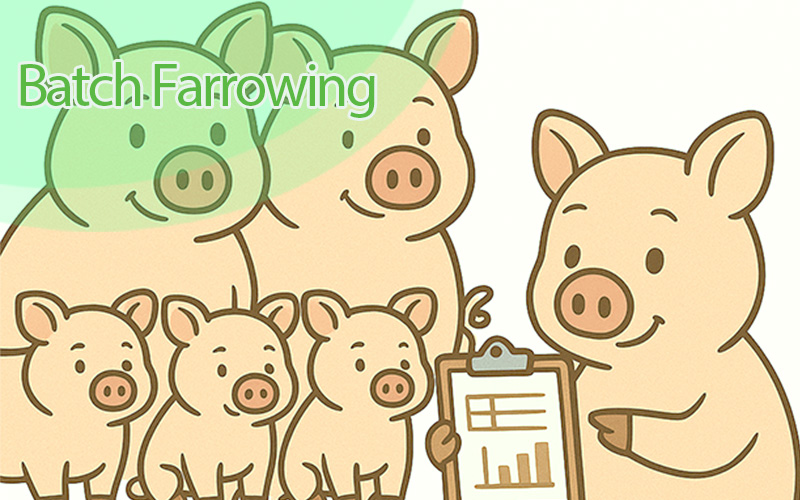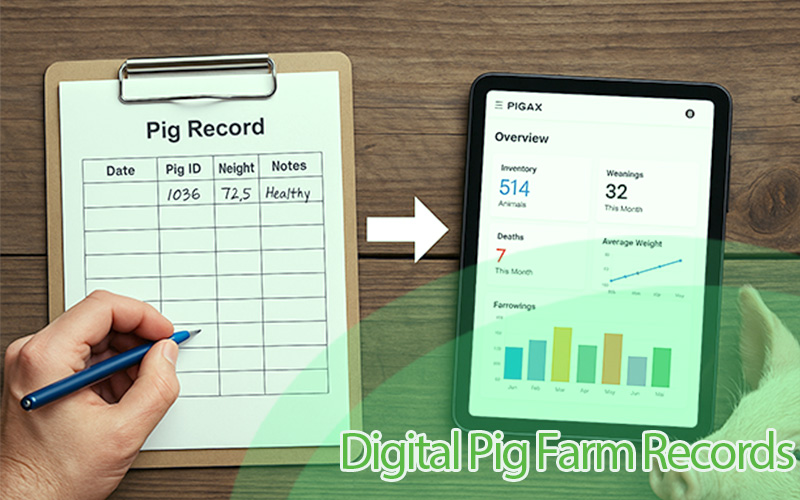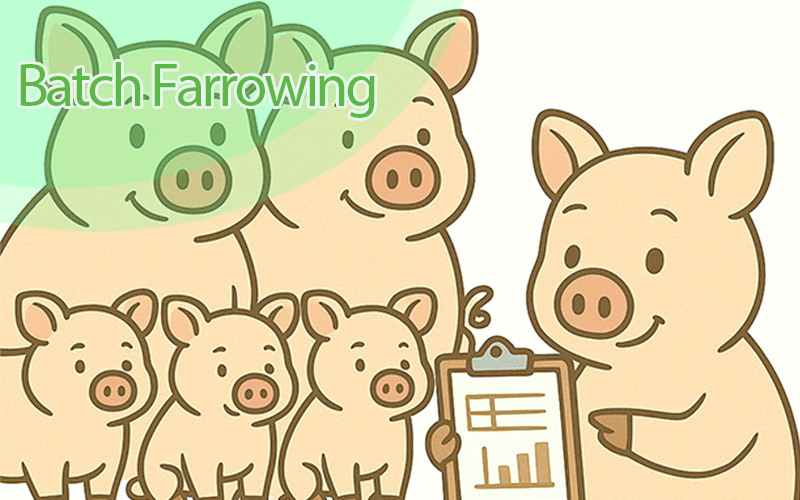7 Best practices to fight major viral diseases that affect pigs
Pigs are susceptible to a wide range of viral diseases, which can have significant impacts on their health, performance, and overall productivity.
Some of the major viral diseases that affect pigs include:
-
Porcine reproductive and respiratory syndrome (PRRS): PRRS is a highly contagious viral disease that affects pigs of all ages. It can cause reproductive failure in breeding pigs, and can lead to severe respiratory illness in growing pigs. The virus can be spread through direct contact with infected pigs, or through contaminated feed, water, or other materials.
-
Swine influenza: Swine influenza is a viral respiratory disease that affects pigs. It is caused by various types of influenza A viruses, and can lead to severe respiratory illness in pigs of all ages. The virus can be spread through direct contact with infected pigs, or through the air.
-
Porcine epidemic diarrhea (PED): PED is a highly contagious viral disease that affects pigs of all ages. It is caused by a coronavirus, and can lead to severe diarrhea, dehydration, and death in young pigs. The virus can be spread through direct contact with infected pigs, or through contaminated feed, water, or other materials.
-
Classical swine fever (CSF): CSF, also known as hog cholera, is a highly contagious viral disease that affects pigs of all ages. It is caused by a virus belonging to the flavivirus family, and can lead to fever, loss of appetite, and death in pigs. The virus can be spread through direct contact with infected pigs, or through contaminated feed, water, or other materials.
-
Foot-and-mouth disease (FMD): FMD is a highly contagious viral disease that affects cloven-hoofed animals, including pigs. It is caused by a group of viruses belonging to the aphthovirus family, and can lead to fever, blisters, and lameness in pigs. The virus can be spread through direct contact with infected animals, or through contaminated feed, water, or other materials.
The best practices for reducing viral diseases in pig farming:
-
Implement biosecurity measures: Biosecurity measures are designed to protect the farm from the introduction of diseases from outside sources. This can include controlling the movement of people, animals, and equipment in and out of the farm, as well as regularly cleaning and disinfecting pens, feeders, and other equipment.
-
Practice proper hygiene: Proper hygiene is essential to prevent the spread of disease on the farm. This includes washing hands frequently, wearing protective clothing, and avoiding contact with sick animals.
-
Vaccinate pigs: Vaccination is an effective way to protect pigs against common viral diseases. It is important to follow the recommended vaccination schedule and to use high-quality vaccines to ensure maximum protection.
-
Quarantine new pigs: Before introducing new pigs to the herd, it is important to quarantine them for a period of time to ensure they are not carrying any diseases. This can help prevent the spread of disease to the rest of the herd.
-
Maintain good nutrition: Proper nutrition is essential for the overall health and well-being of pigs. A balanced diet can help boost the immune system of pigs and increase their resistance to disease.
-
Monitor pigs regularly: Regular monitoring of pigs can help identify any potential health problems early on, which can help prevent the spread of disease. This can include checking for signs of illness, monitoring feed and water intake, and checking the overall condition of the pigs.
-
Isolate sick pigs: If a pig becomes sick, it is important to isolate it from the rest of the herd to prevent the spread of disease. This can help prevent the disease from spreading and allow the sick pig to receive the necessary treatment.
Overall, pigs are susceptible to a wide range of viral diseases, which can have significant impacts on their health, performance, and overall productivity. By implementing effective biosecurity measures, and taking steps to prevent and control these diseases by implementing the steps mentioned above, farmers can help to protect the health and well-being of their pigs, and ensure the success and sustainability of their operation.




